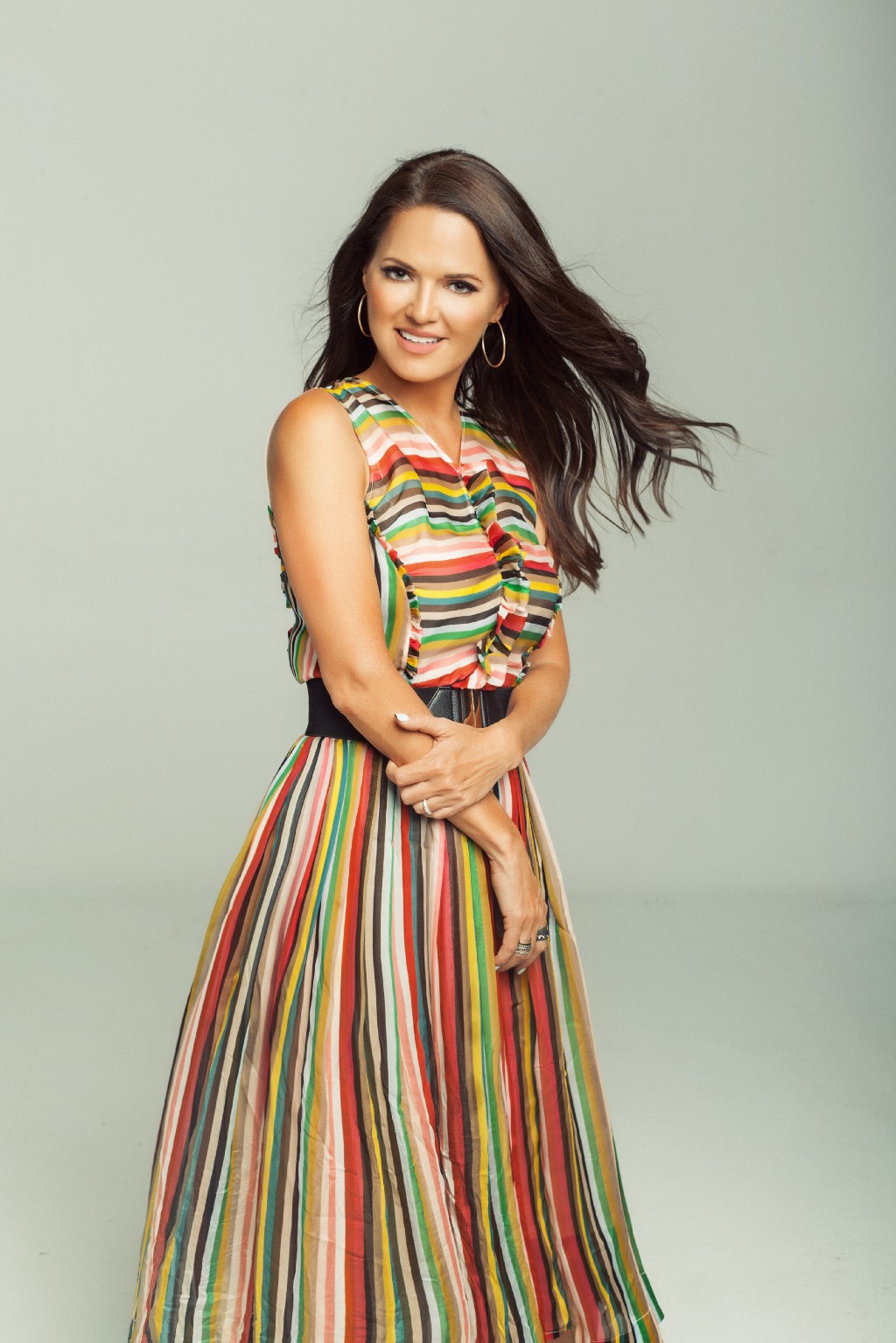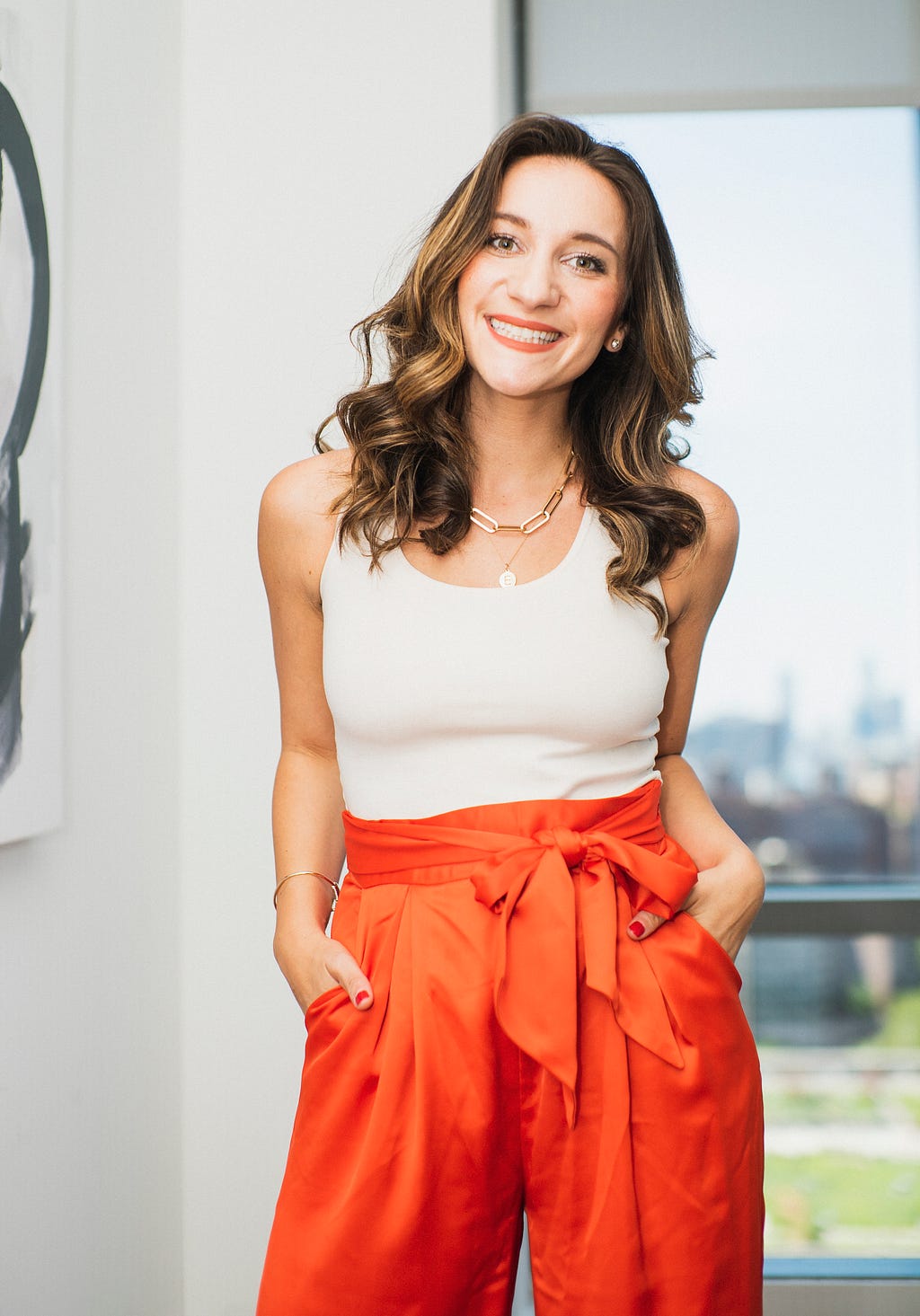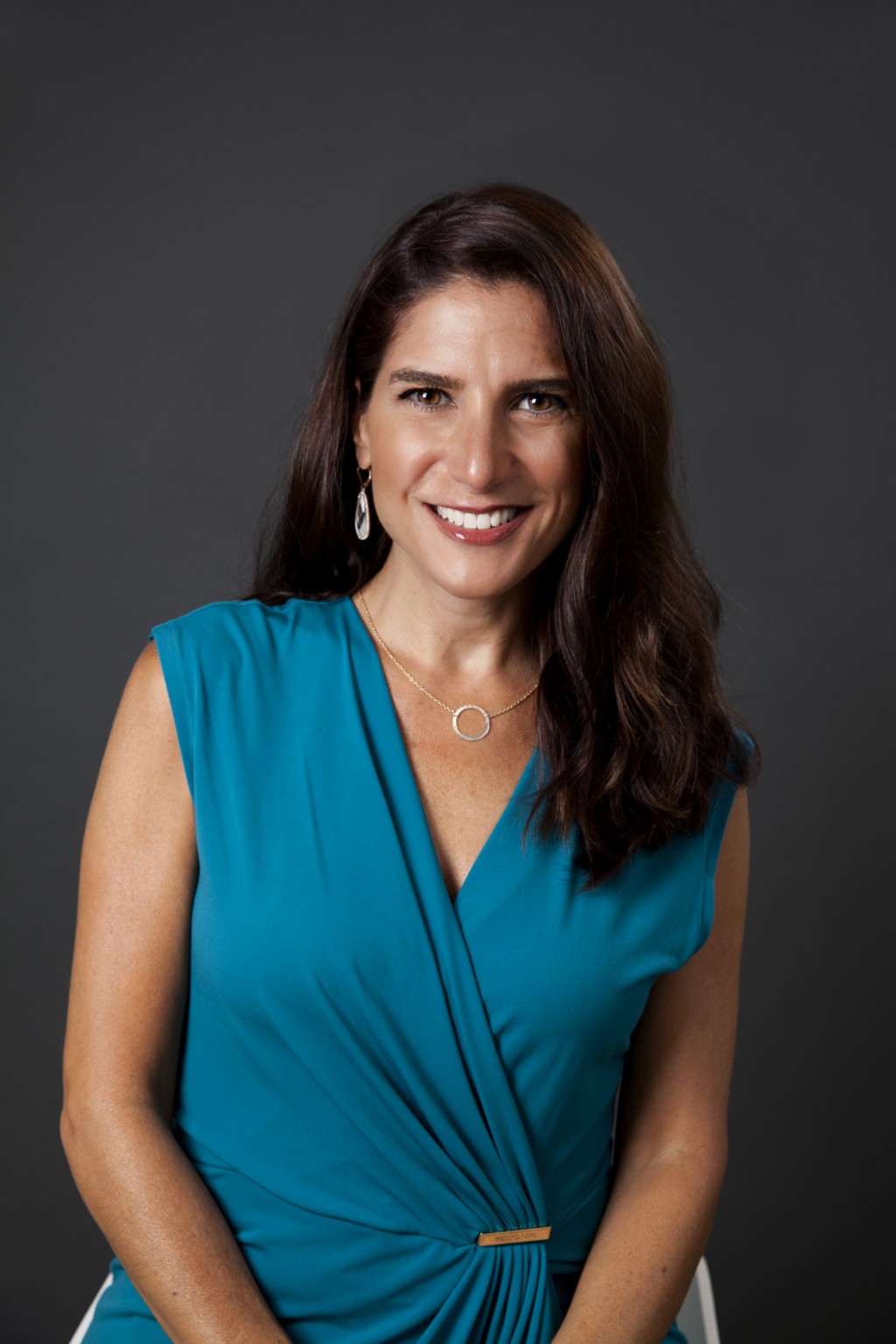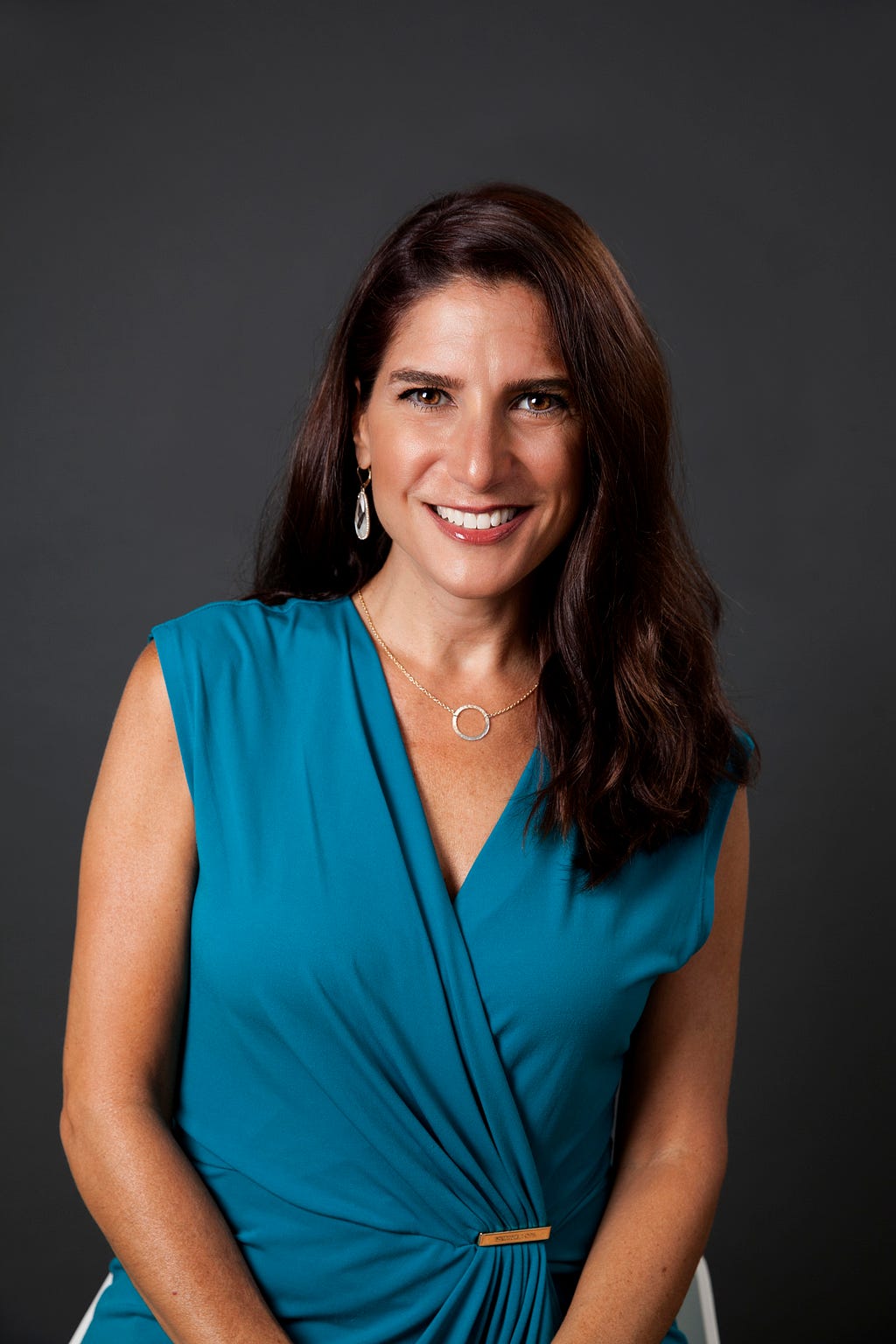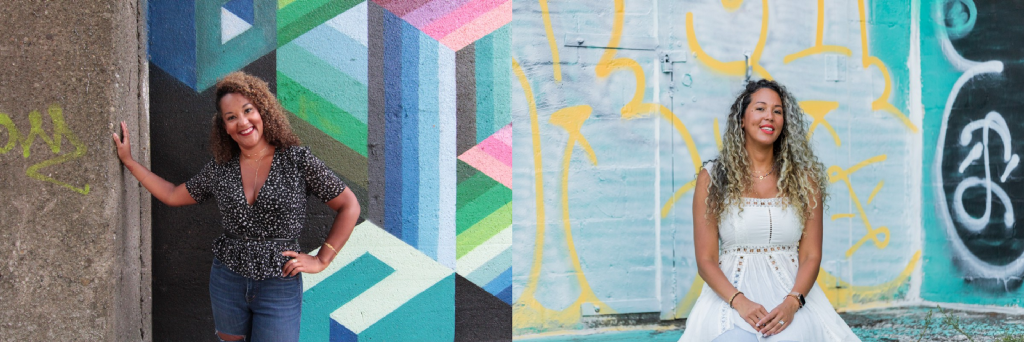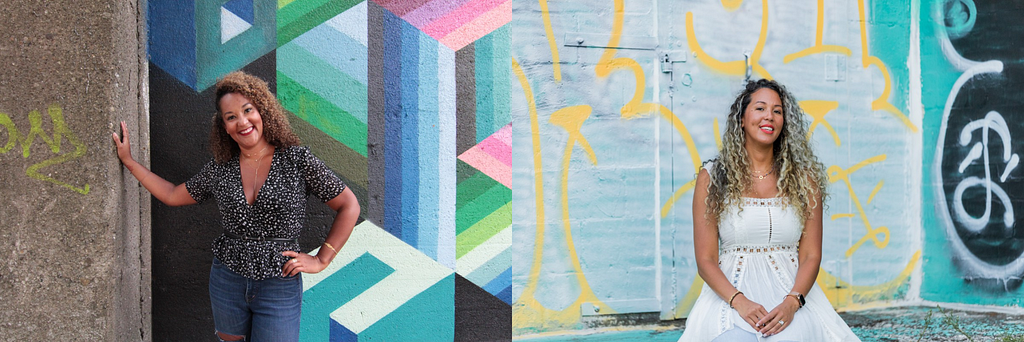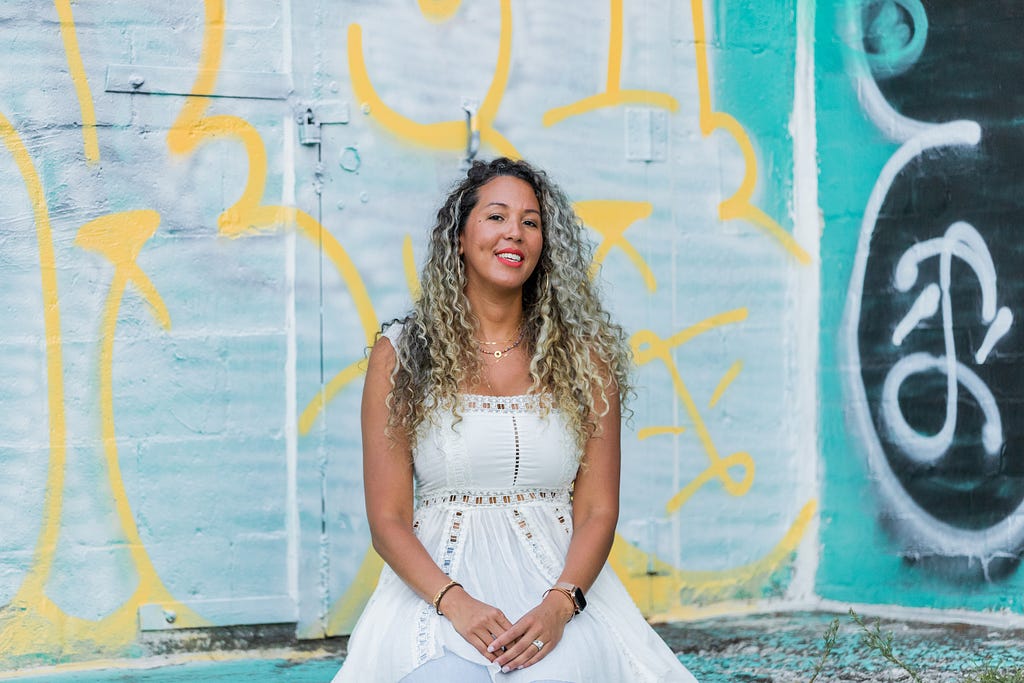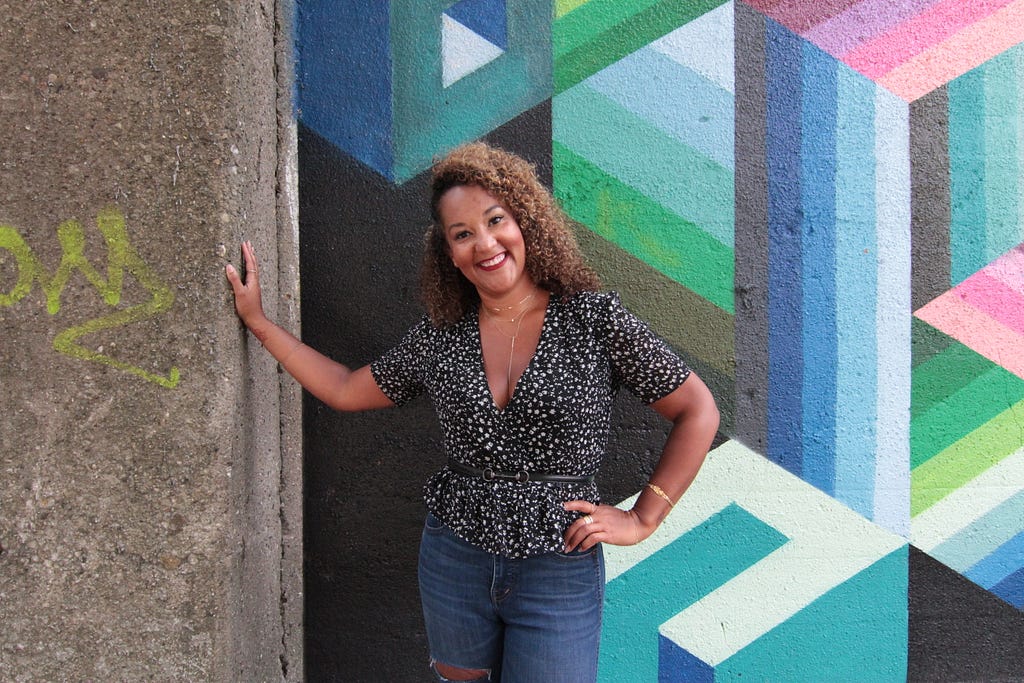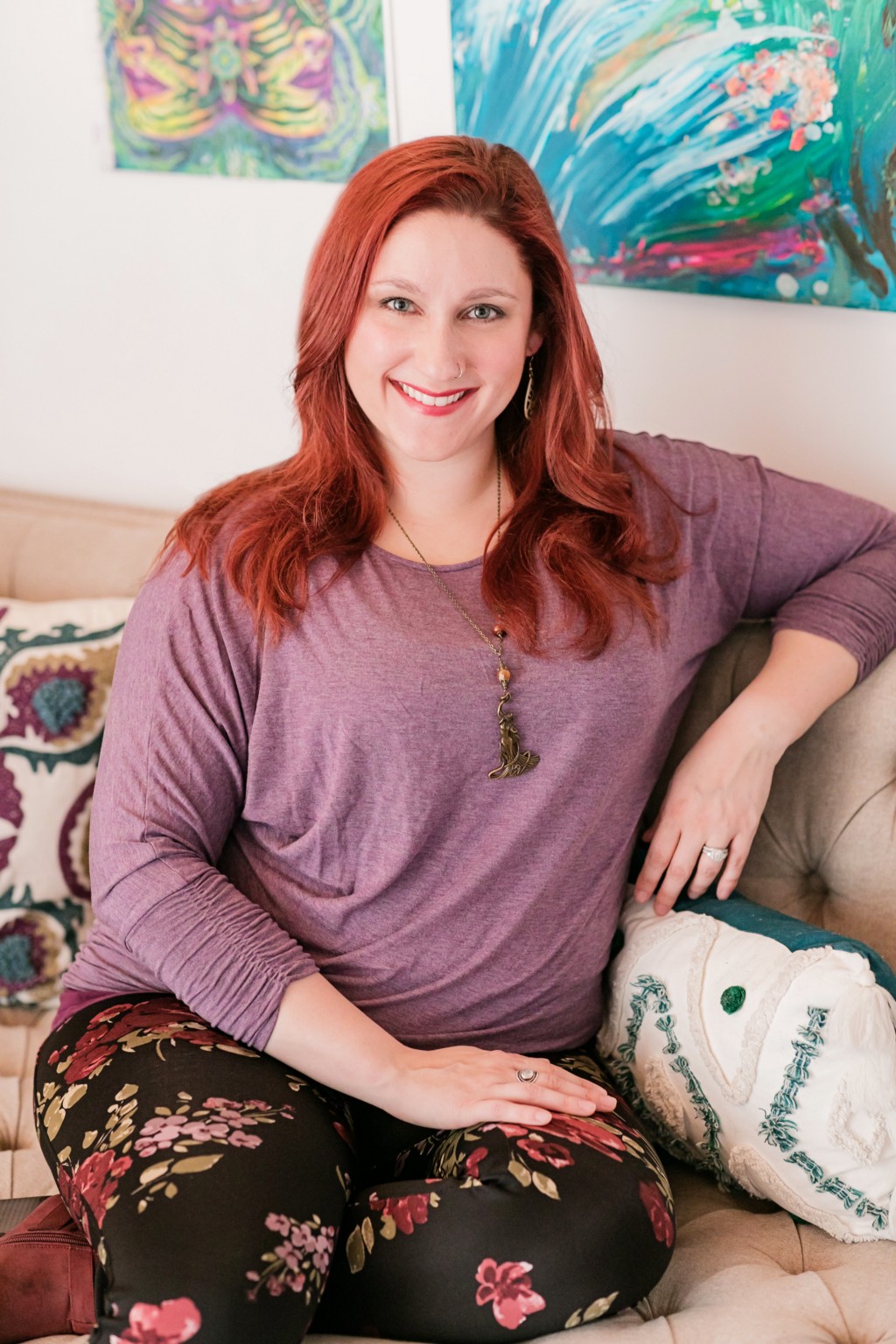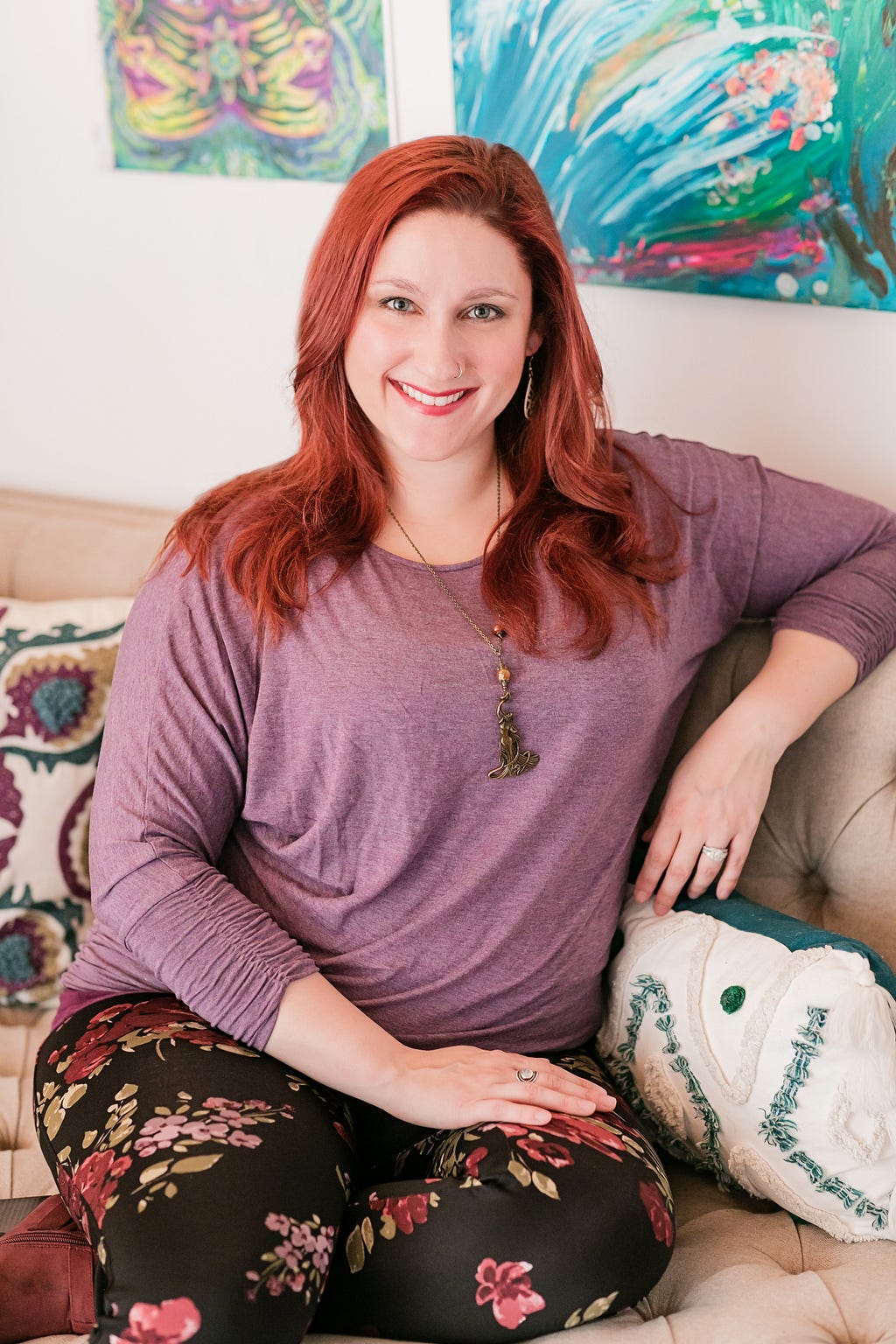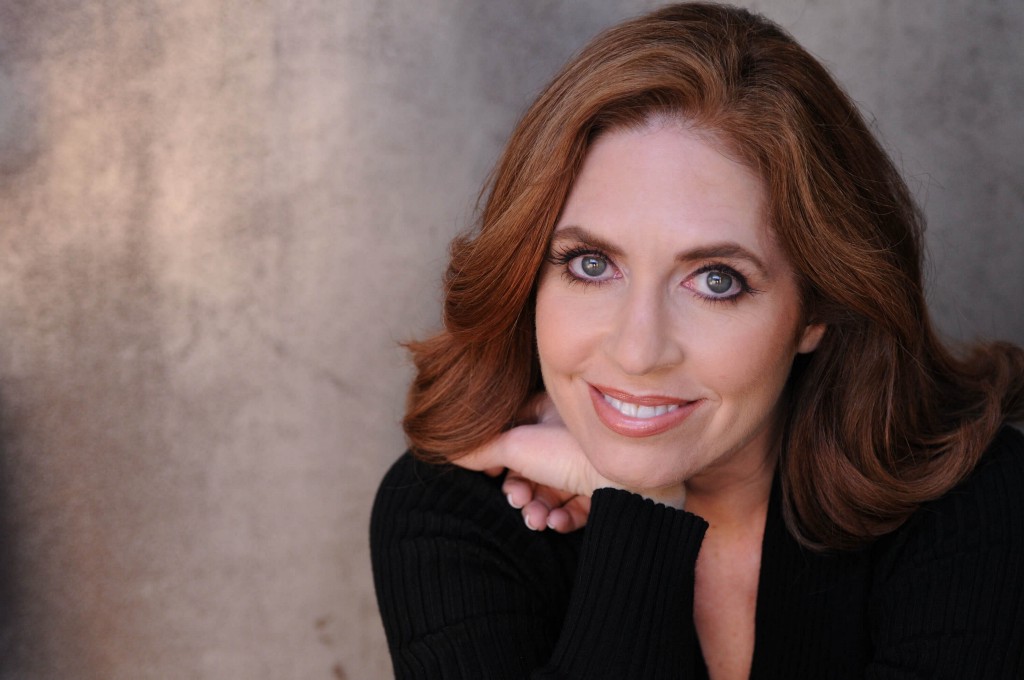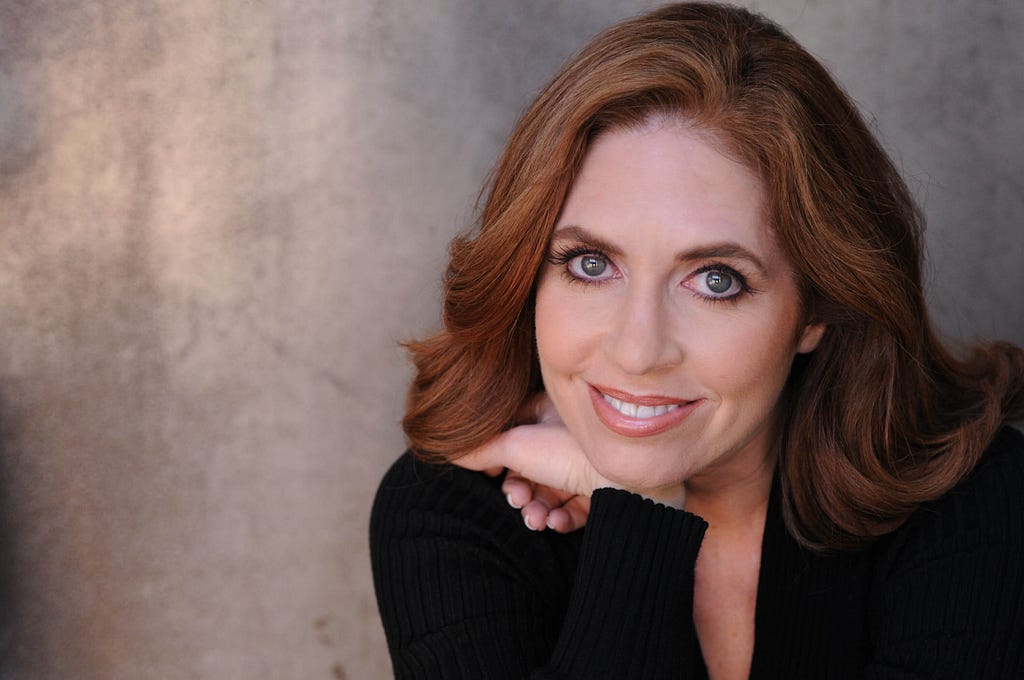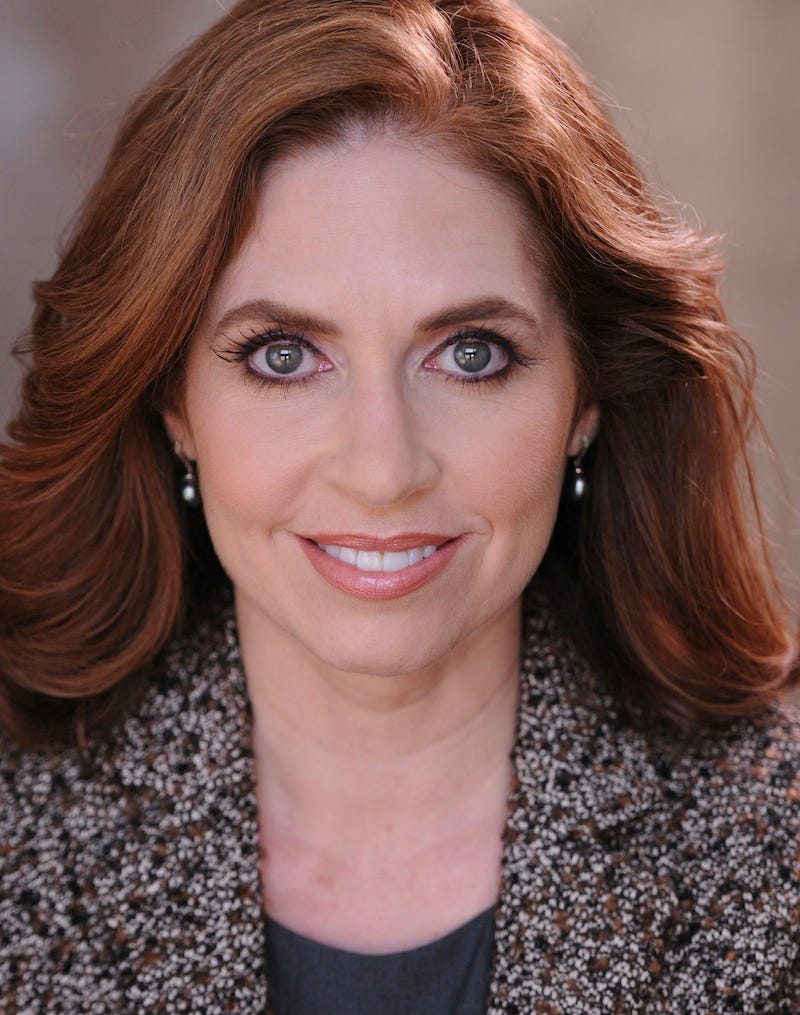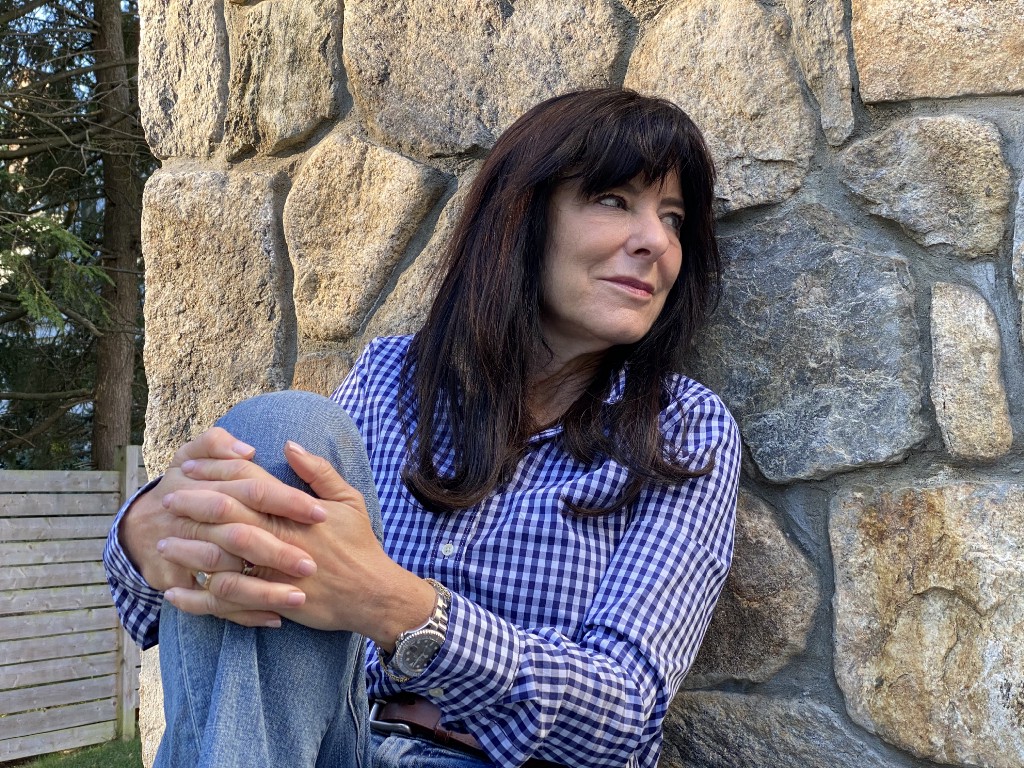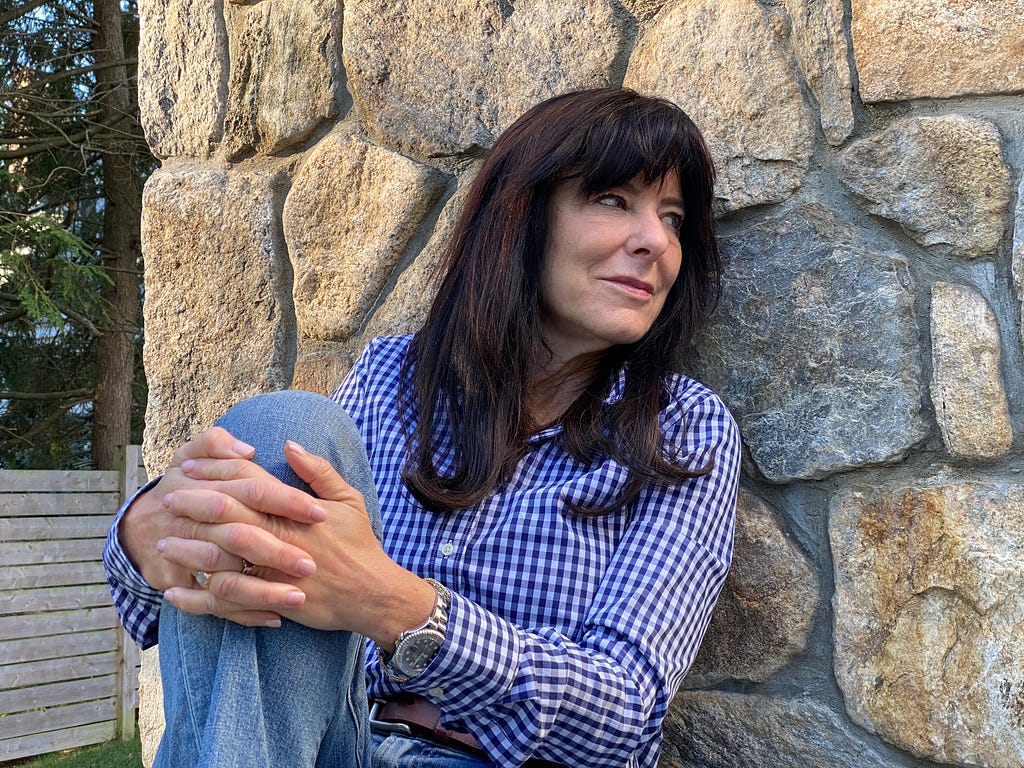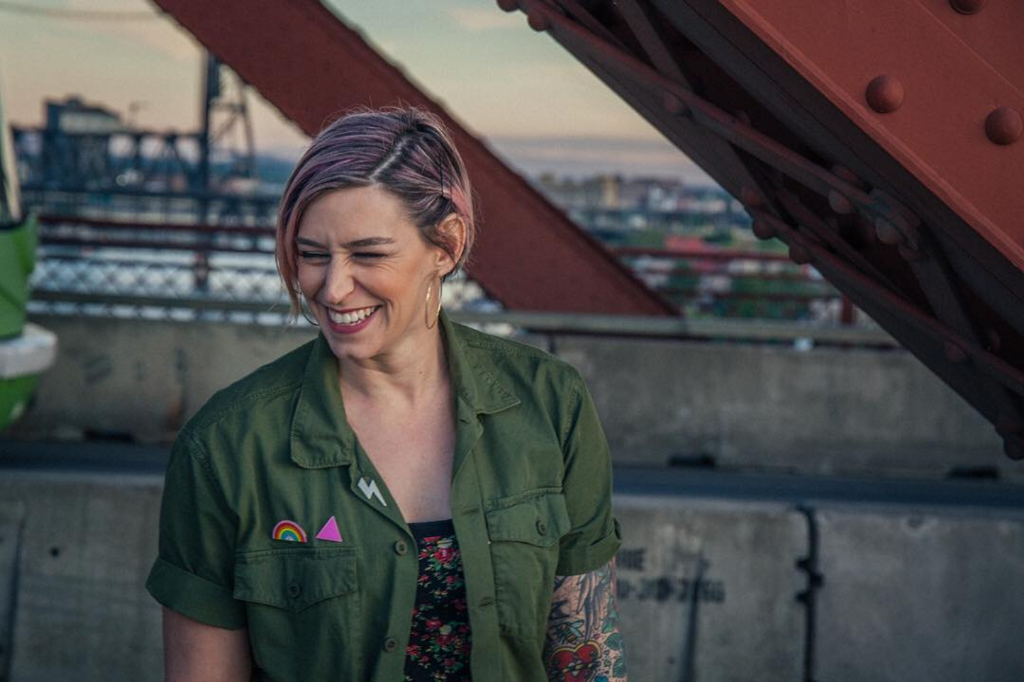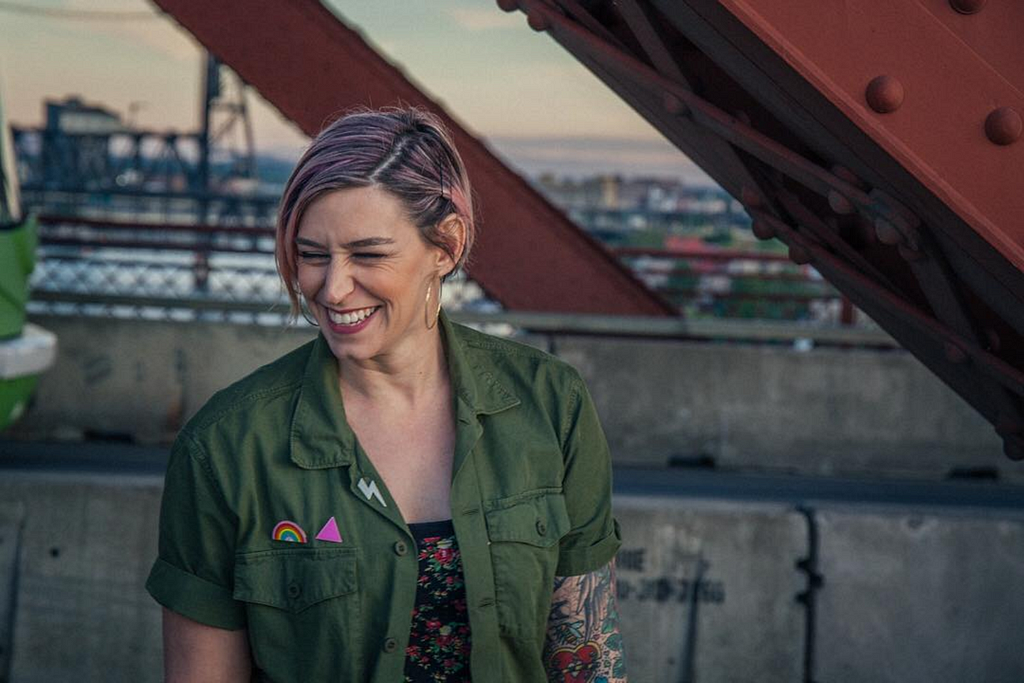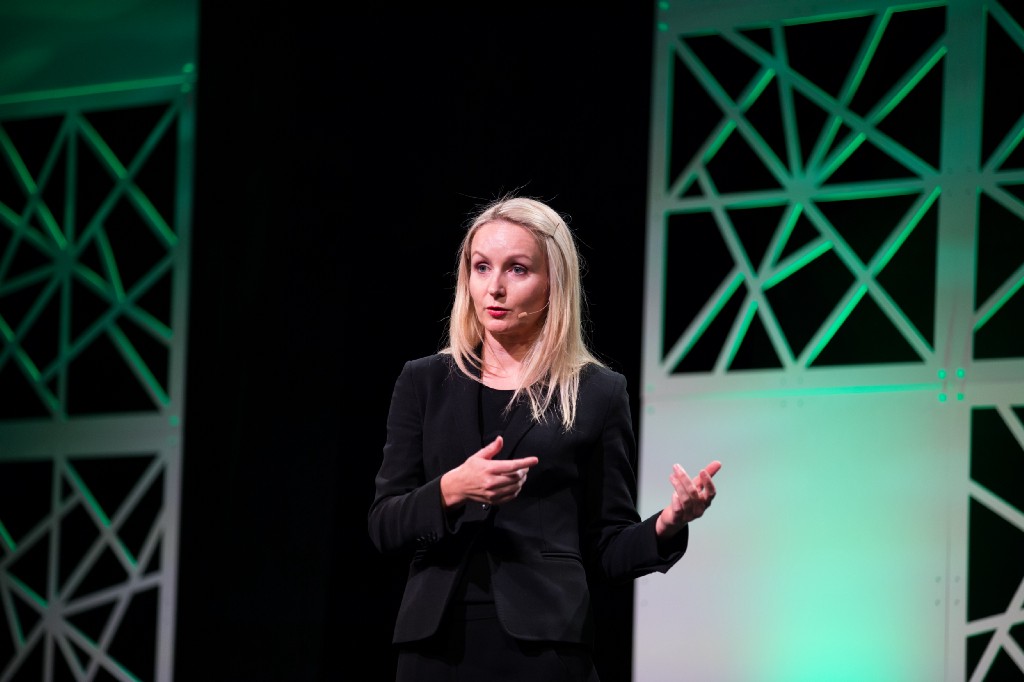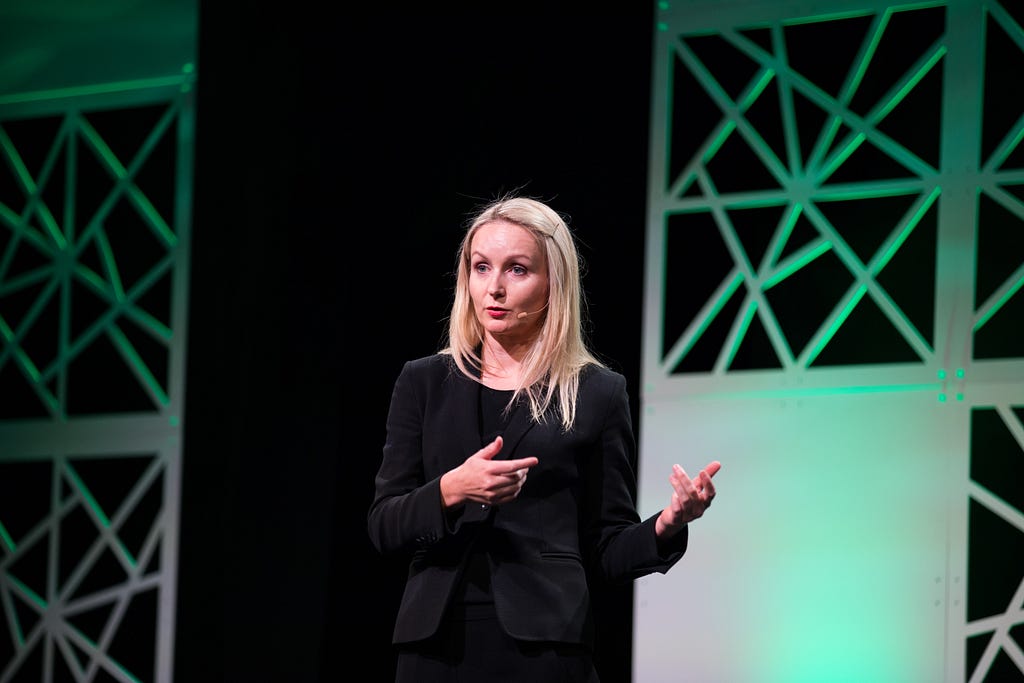Female Disruptors: Alysia Helming of Earthfund On The Three Things You Need To Shake Up Your Industry
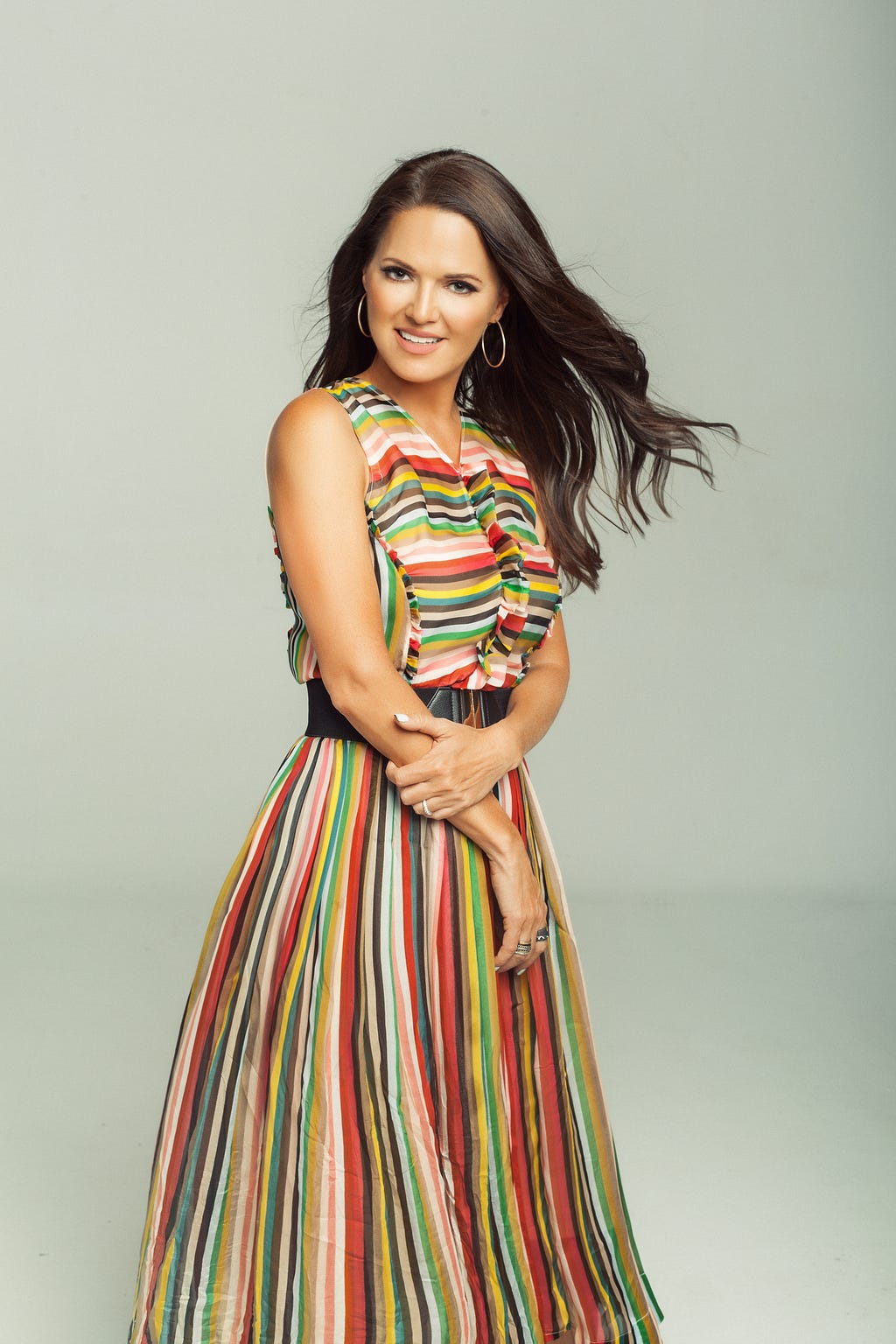
When I published my first novel “Protogenesis: Before the Beginning”, I was surprised by some of the reviews. While on average, I had 4.5 star reviews, some people attacked me as the author, for no good reason and even though the book was fiction. It was as if they did not even read the book. Not everyone will like you, nor will they like what you’re doing. Feedback is important, but, at the end of the day, you need to stick with your gut and your vision to do what you believe is best. No one else can do it for you.
As a part of our series about women who are shaking things up in their industry, I had the pleasure of interviewing Alysia Helming.
Alysia Helming is a true pioneer of wind, solar & biofuels in the US. Co-founded, CFO & sold companies with projects >$6B. Pristine Sun was the largest developer of small utility-scale solar in California. TradeWind Energy, which was sold in 2019, made Enel Green Power the largest wind and solar company in the world. Featured as a Keynote Speaker in Sustainability, renewable energy and women’s empowerment. International bestselling author of the Protogenesis series (set in Greece), Executive Producer of short films made in collaboration with the Greek Minister of Tourism and Discover Greece. Former Big 6 C-level Consultant to fortune 50 companies and Wells Fargo Bank Finance. UCSC, UCLA.
Thank you so much for doing this with us! Before we dig in, our readers would like to get to know you a bit more. Can you tell us a bit about your “backstory”? What led you to this particular career path?
Almost twenty years ago, my husband (Troy Helming) and I disrupted the fossil fuels industry in the Midwest when we started the first locally based wind farm company in Kansas, which became one of the largest wind developers in the US, Trade Wind Energy, and was recently acquired by Enel Green Power, the leading developer of solar and wind energy in the world. During these early years, we were like David trying to take on Goliath, because, as it turned out, our first wind farm site was the favored hunting grounds of billionaires Charles and David Koch. Back then, it was not widely known, but of course now, most people know that they lead much of the opposition against clean energy in the US today! But we persevered. Ultimately, we paved the way to change the laws in the Midwest to encourage power plants to clean up existing power plants and build wind farms instead of coal power plants.
Besides wind power, we also built a 10 million gallon biodiesel plant from used cooking oil from restaurants from scratch, which started with garden hoses in our garage; and in 2009, we started what became the largest independently owned utility scale solar development company in California, Pristine Sun.
At the beginning of all this, I was very much a reluctant environmentalist. As a former Big 6 and Fortune 50 finance executive, I was initially skeptical that wind energy could be profitable. Politically, I was a Republican and had close friends who worked in gas and coal power. I did not recycle. I was not used to taking big risks, not at all the person to quit my lucrative career to become an entrepreneur! I was nervous to speak out in public. Wind power was profitable, even twenty years ago; but making money was not enough reason for me to risk my professional reputation to join my husband’s crusade to start what was essentially an energy revolution back then. What, then, did convince me?
In the area where I grew up in Kansas City, we lived along the Missouri River, where, just across the river, were coal-fired plants. It was around this time that we discovered a troubling correlation: a disproportionately high number of children who lived in my neighborhood had been diagnosed with autism. My 3-year-old nephew was one of them! Of course, there had been many hotly debated studies that linked mercury exposure to autism. Back in 2002, the coal plants were polluting the air and water with high levels of mercury. Common sense told us that something needed to be done, for the sake of our children.
Can you tell our readers what it is about the work you’re doing that’s disruptive?
Earthfund Global is a non-profit organization that is focused on helping countries achieve climate neutrality ASAP, through the lens of highly strategic, technology-enabled solutions which enable more deployment of capital and cut down on bottlenecks and inefficiencies. Our global model is customized to the specific needs of each country. What is specifically disruptive is that EarthFund partners with cutting edge clean technology companies, like EarthIndex, the world’s first clean energy platform designed to accelerate a country or state’s ability to rapidly scale to 100% clean energy by 2030. To achieve this, EarthIndex works with world-class technology companies, such as ESRI, and advisors from Google, Tesla and EIT-Climate-Kic Silicon Valley, to develop a country/state level solution to change the game in clean energy development, starting in Greece and in California.
EarthIndex teaser video:
Can you share a story about the funniest mistake you made when you were first starting? Can you tell us what lesson you learned from that?
As I mentioned, my husband Troy and I have worked together for many years. It is not always easy working with your significant other, especially when you are first starting a venture. One time, during a board of directors meeting over the phone, we placed the call on mute and began arguing over something insignificant, like most couples do. Unfortunately, we hit the increase volume button instead! The board directors, whom were thankfully also our friends, proceeded to advise us on our personal issue.
We learned that it is important to keep our personal matters at home. From that point on, we did this so well that people we met often did not know we were married. Later, when our companies grew from just a few people to developing billions in clean energy projects, it served me best to keep my own professional identity.
We all need a little help along the journey. Who have been some of your mentors? Can you share a story about how they made an impact?
Through the years, my mentors in renewable energy include Jigar Shah, the LinkedIn Top Energy/Climate Voice and with whom I have known since we first started our wind company back when he founded Sun Edison. More than a few times during the progression of our companies, he has offered us sound advice which led more growth. Mark Jacobson, Professor & Director of Atmos Energy Program at Stanford inspired me with his ambitious plans to convert the world to 100% clean energy. This gave me the idea that we need a boots on the ground whole-country initiative follows his theories with actionable, customized solution to make those plans a reality. Debi Ryan, Head of Commercial Direct Sales, Americas from Tesla Energy, has been by my side as we created our logos, branding and core strategy for EarthFund and EarthIndex.
As I’m also involved in entertainment, I’m specifically interested in how media can impact sustainability. Neil Hunt, former Chief Product Officer and the second largest individual shareholder of NetFlix, has been a great mentor. As I was in the early stages of forming EarthFund and EarthIndex, Neil was a sounding board for me. Bill Bridge of Global Green USA is also a strong mentor, as he has helped me understand the non-profit world and offered key insights into our holistic strategy which includes for-profit, non-profit and governments.
In today’s parlance, being disruptive is usually a positive adjective. But is disrupting always good? When do we say the converse, that a system or structure has ‘withstood the test of time’? Can you articulate to our readers when disrupting an industry is positive, and when disrupting an industry is ‘not so positive’? Can you share some examples of what you mean?
What I hear time and time again from investors is that if you are going to create something the world has never seen before, then it better be something that has been successful before in some form, somewhere. Why I say this: there may be a very good reason the product or service has not been offered yet. Not every business plan is a good one. In every business I’ve started (nine in total), its not smart to reinvent the wheel.
An example of this is the EarthIndex platform. We are combining components from the world’s best technology companies to create architecture which aggregates, analyzes and streamlines clean energy data and utilizes machine learning, virtual reality, and all the buzz words we say in the tech world to offer insight and foresight to all of the key stakeholders involved in building clean energy projects. Similar platforms exist for other industries and for a sub-set of the clean energy industry. Our platform differs as it is for an entire country (or state) and for all renewables — and we’re tied to a powerful network of non-profits through Global Green and Green Cross International, to engage and educate each country’s community around the platform — to make the maximum impact possible, as fast as possible.
Can you share 3 of the best words of advice you’ve gotten along your journey? Please give a story or example for each.
“If you have an idea that you genuinely think is a good one, don’t ever let some idiot stop you from doing it.” — wise words from Stan Lee. Everyone will have an opinion, both good and bad.
When I published my first novel “Protogenesis: Before the Beginning”, I was surprised by some of the reviews. While on average, I had 4.5 star reviews, some people attacked me as the author, for no good reason and even though the book was fiction. It was as if they did not even read the book. Not everyone will like you, nor will they like what you’re doing. Feedback is important, but, at the end of the day, you need to stick with your gut and your vision to do what you believe is best. No one else can do it for you.
We are sure you aren’t done. How are you going to shake things up next?
EarthFund and EarthIndex started a year ago, so now, the planning stage is done! But this is just the beginning. Now, we’re ready to roll out our country level initiatives in Greece and state-level in California. From there, we are evaluating other countries and states. Each country will be a bit of a shake up and unique adventure, because it is the action and input from the people, including understanding their history, economy and anthropology, that will ultimately determine the success of our initiatives.
In your opinion, what are the biggest challenges faced by ‘women disruptors’ that aren’t typically faced by their male counterparts?
Today, I believe that the world is more accepting of women in disruptive roles. For me, as this was twenty years ago and I founded and grew companies together with my husband, I often found myself operating behind the scenes, while he was the public “face” of the company. Even today, I think women who work alongside their husbands are easily labeled as a “mom and pop”, where the mom is viewed as performing some menial support role. For me, as I have worked with CEOs of Fortune 50 companies as a strategic advisor and for the CFO of Wells Fargo Bank, I was very much involved in defining the strategy and engaged in raising millions of dollars for our companies. I was well qualified for the role that I had as CFO for our companies, regardless of my also being a Founder with my husband. I have a great deal of respect for any woman who can work alongside her husband or partner. It’s incredibly rewarding, but also quite challenging to maintain a balanced home life when you work together as well. On top of that, as I mentioned, it is a challenge to maintain your own sense of identity, as a reflection of your true contribution to the company, to the outside world.
Do you have a book/podcast/talk that’s had a deep impact on your thinking? Can you share a story with us?
“Change your Thoughts, Change your Life” by Dr. Wayne Dyer had a huge impact on me. The book utilizes Lao Tsu’s words from the Tao Tse Ching to apply to today’s world. I learned from this that you can’t control everything and that life is about balance. If something horrible is happening right now, then that means something positive must be right around the corner. During those years where we had very little money, death threats, sabotage, you name it, it helps to know this. If you truly want to do big, fantastic things in life, then sometimes, bad things will happen too. It’s inevitable. It’s how you view those hard times that determines your ability to stick with it (or not).
You are a person of great influence. If you could inspire a movement that would bring the most amount of good to the most amount of people, what would that be? You never know what your idea can trigger. 🙂
I’m already living that movement! ? We also have plans to engage the media to shine a spotlight on the countries that we will work in, to further our mission as well. Global Green has a long list of celebrities as Board Emeritus or Advocates. Most are looking for real world, action-based initiatives where they can maximize the reach of their influence for the greater good.
Can you please give us your favorite “Life Lesson Quote”? Can you share how that was relevant to you in your life?
“Once you make a decision, the universe conspires to make it happen.” — Ralph Waldo Emerson
This has been true for me, particularly with my writing, which is much more than just a hobby. When I wrote strategic plans for Fortune 50 companies, if they followed those plans, they were almost always a success. When I faced overwhelming odds in my quest to transform the Midwest to build wind farms instead of coal plants, I enrolled in a UCLA’s extension screenwriting class as a form of therapy, where I wrote my real-life story into a feature length screenplay. Since no great ending was in sight to that story, I wrote the end that I wanted to happen. It was a crazy ending! Like that wind farm company might just become the largest in the US someday. And guess what? A few years later, that ending happened! Lastly, when I wrote the Protogenesis novel series set in Athens, Greece, I wrote most of it from my home, having not been there more than once before. When I had almost finished the first draft, I finally went there. And almost immediately, some of the fictional characters I thought I had created in my head, were eerily similiar to real life people I met there! It was this experience that led me to visit Greece so many times that I understood there was an opportunity right now to help the entire country move to clean energy. And this, inspired EarthFund and EarthIndex!
How can our readers follow you online?
www.earthfundglobal.org, https://www.facebook.com/earthfundglobal, https://twitter.com/EarthFundGlobal
This was very inspiring. Thank you so much for joining us!
Female Disruptors: Alysia Helming of Earthfund On The Three Things You Need To Shake Up Your… was originally published in Authority Magazine on Medium, where people are continuing the conversation by highlighting and responding to this story.


